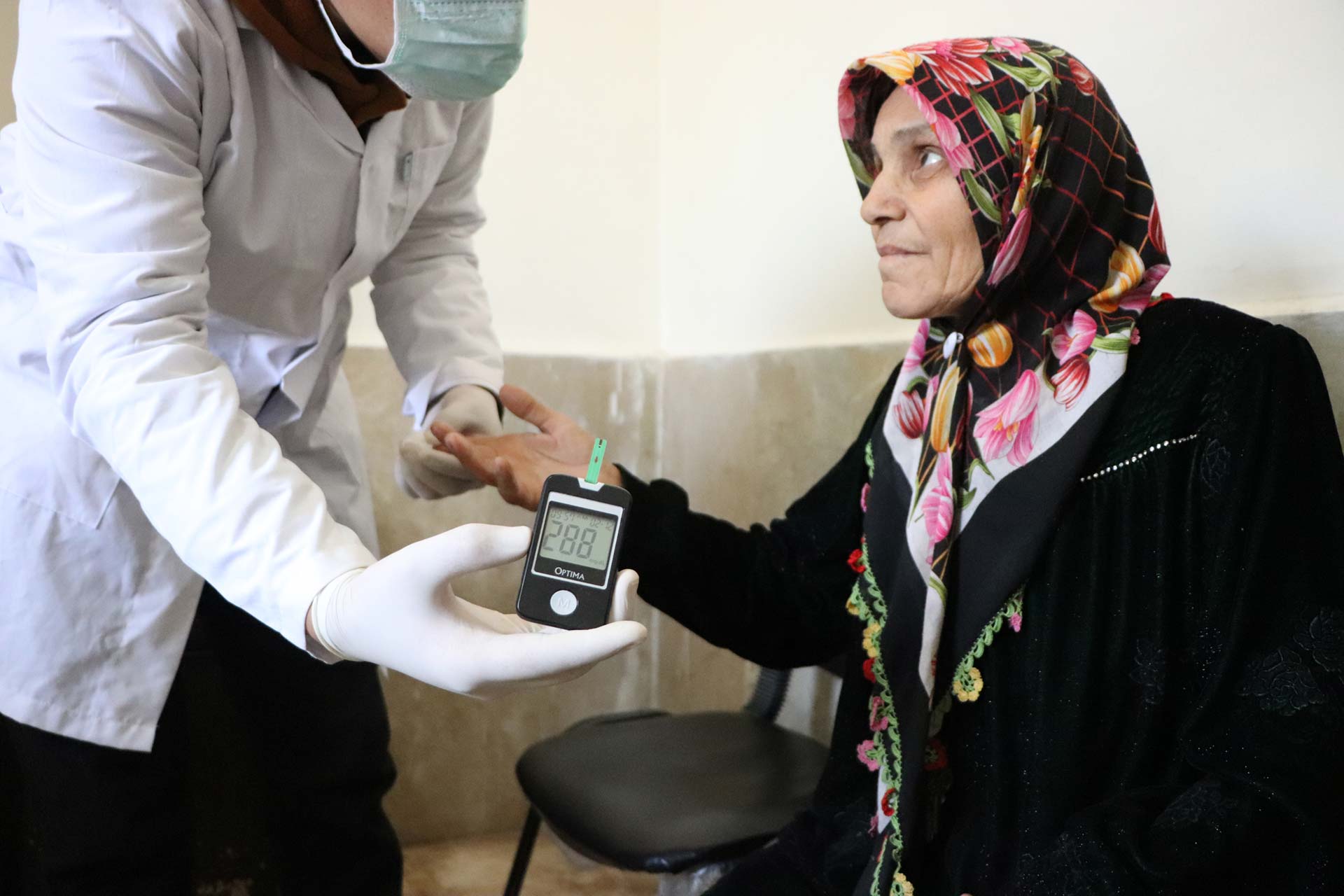
13 October 2025 – Noncommunicable diseases (NCDs) such as diabetes, cancer, chronic lung conditions, and heart disease claim millions of lives across the Eastern Mediterranean Region. Each year, more than 2.8 million people die from these 4 major NCDs. In 2025, nearly 3 out of every 4 deaths in the Region were related to these conditions. And in times of crisis, during conflict, displacement, and natural disasters, the risks multiply, with complications from NCDs happening 2-3 times more than in stable settings.
Behind the numbers are real people, families struggling to access care, patients facing life-threatening complications, and communities trying to rebuild their health systems amid emergencies.
The Eastern Mediterranean has one of the highest rates of premature death from NCDs globally. Nearly 23% of people who die before the age of 70 do so due to these conditions. The burden is heaviest on low- and middle-income countries, where health systems are often overstretched. Few countries in the Region offer NCD services at primary care level, leaving many people undiagnosed and untreated.
The World Health Organization (WHO), working closely with Member States and partners, is promoting steps to redress the situation.
Through global and regional forums, WHO is helping countries understand the urgency of integrating NCD care into emergency responses. Advocacy efforts have focused on securing funding and building momentum for action.
WHO has developed practical guides and communication tools to help countries plan and implement NCD services, even in the most challenging settings, and in 6 priority countries, the Organization is helping integrate essential NCD services into primary health care. This includes training health workers, ensuring access to medicines, and maintaining services during prolonged crises through WHO hub in Dubai.
Despite progress in several countries, obstacles and challenges continue to demand attention from governments, partners, donors, communities, and NGOs.
Limited funding
Most emergencies occur in countries already dependent on humanitarian aid. Without sustainable financing, NCD services struggle to survive.
Competing priorities
In crisis settings, communicable diseases often take precedence, leaving NCDs overlooked.
Weak integration
In many places, NCDs are not part of national emergency plans, resulting in gaps in care when people need it most.
Interrupted care
Conflicts and instability make it hard to ensure continuous treatment for chronic conditions.
Lack of data and coordination
Some countries lack dedicated NCD departments and/or reliable data systems, making it difficult to plan and respond effectively.
Limited local engagement
Without strong local ownership, efforts to integrate NCDs into emergency responses can stall.
During the 70th session of the WHO Regional Committee (RC) for the Eastern Mediterranean in October 2023, Member States endorsed the WHO regional framework for action on addressing NCDs in emergencies to support countries in their efforts to manage NCDs in crises. This year, during the 72nd session of the RC, the first progress report on addressing NCDs in emergencies will be presented, which calls on countries and WHO to take bold steps to ensure financial sustainability, advocate for more donor support, and embed NCD care into broader humanitarian health efforts. In addition, the second progress report on addressing diabetes as a public health challenge in the EMR will also be discussed, which includes specific actions for action on diabetes in crises.








